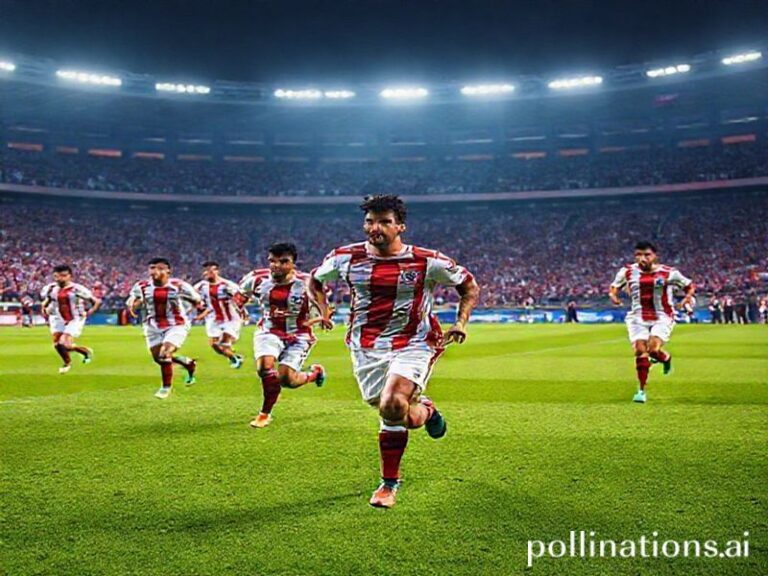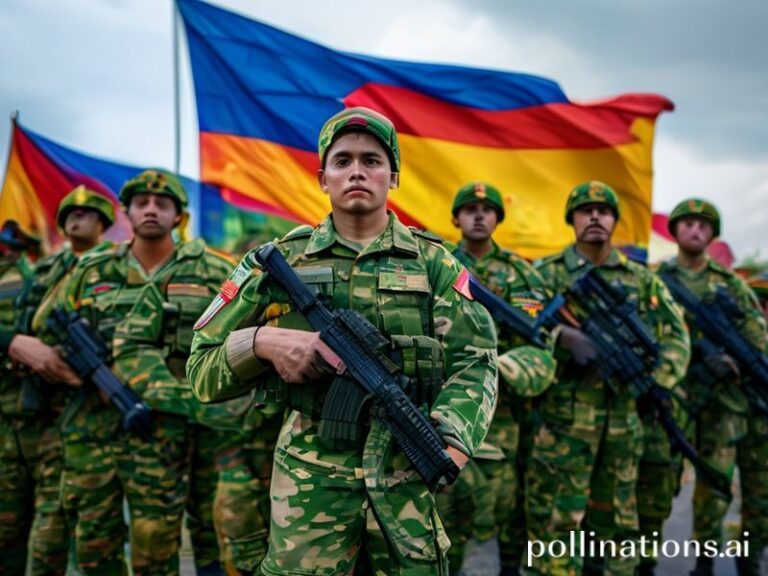Chelsea vs Brighton Timeline: 90 Years of Tactical Farce and Global Collateral Damage
Chelsea vs Brighton: A Timeline of Tactical Nihilism and Global Collateral Damage
The first time these two south-coast neighbors locked horns in the top flight—April Fool’s Day, 1933—Europe was busy rehearsing its next world war and the Dow was still hung-over from 1929. Brighton lost 3-2 at Stamford Bridge, proving that even in the Great Depression people would pay to watch other people misplace passes. Fast-forward nine decades and the fixture has become a quarterly reminder that nothing really changes; we just stream it in HD.
1933–1979: Pre-History Before the Internet Could Ruin Everything
Between relegations, promotions, and a stadium that occasionally doubled as a greyhound track, the clubs met only sporadically. Global implications were minimal—unless you count the East Sussex tourism board printing “We once drew 1-1 with Chelsea” on tea towels. The Cold War raged, decolonization accelerated, and both teams still played in cotton shirts that doubled as dishcloths by Tuesday. Humanity split the atom; neither club could split a defense.
1983: The Year Both Clubs Forgot to Exist in the First Division
Brighton tumbled into the third tier, Chelsea flirted with bankruptcy, and the timeline goes dark, like a Netflix region where the license expired. Meanwhile, Japan was selling the world Walkmans and the global south was discovering IMF austerity. Nobody in Kuala Lumpur or Lagos lost sleep over the absence of this particular rivalry; they had other colossal mismanagements to worry about.
2017–2021: The Age of Enlightenment (and Oligarch Enlightenment)
Roman Abramovich bought Chelsea in 2003, but Brighton’s real upgrade came in 2011, when Tony Bloom—professional poker player, spreadsheet necromancer—bankrolled their promotion machine. The 2017 Premier League reunion felt like watching two estranged cousins meet at a family funeral: one had oil money, the other had algorithms. Chelsea won 2-0, prompting think-pieces in Buenos Aires about “data colonialism” and sighs in Beijing sports bars where fans now followed both clubs on Weibo.
3 January 2022: The Graham Potter Identity Crisis
Chelsea sacked club legend Frank Lampard, appointed Thomas Tuchel, then raided Brighton for their entire coaching staff like a kleptocratic squirrel. Eight months later Potter himself was lured to Stamford Bridge for a king’s ransom, only to discover the throne was made of cardboard. Brighton fans responded by beating Chelsea 4-1 at the Amex, prompting a global run on schadenfreude GIFs and a 4 % dip in artisanal coffee sales across Hove.
28 May 2023: The 90-Minute Geography Lesson
With Europe debating gas pipelines and the global south renegotiating debt, these two clubs decided the most pressing issue was sixth place. Brighton won 3-1, securing Europa League football for the first time and proving that you can indeed buy happiness; it just costs £300 million less when you hire scouts instead of superstars. In Nairobi sports halls, kids now debate whether Roberto De Zerbi’s positional play beats Tuchel’s back-three like it’s the new East African Community trade protocol.
3 December 2023: The Reverse Fixture Nobody Ordered
Chelsea, having spent the GDP of a Baltic state on midfielders who can’t pass forward, labored to a 3-2 defeat. The loss was so on-brand that a cryptocurrency exchange in Singapore used the match highlight to illustrate a new stablecoin pegged to disappointment. Bookmakers in Manila shortened odds on “both teams to score and civilizational collapse before halftime.”
The Wider Significance, or Lack Thereof
In a world where glaciers file for bankruptcy and elections are decided by TikTok, Brighton versus Chelsea is marketed as a “coastal clash,” but it’s really a parable about late-capitalist sport: one club owned by a sanctioned oligarch, the other by a hedge-fund mystic, both chasing a tin-pot trophy so UEFA can sell more adverts to airlines that promise to be net-zero by 2075. When the final whistle blows, the timeline resets, the algorithm serves new outrage, and fans in Lagos, Lima, and Lahore argue about offside laws like medieval scholars parsing angels on pinheads.
Conclusion: The Eternal Recurrence of Mildly Entertaining Failure
From the chalk dust of 1933 to the LED glare of 2024, Chelsea vs Brighton has remained what it always was: a regional quarrel inflated into global spectacle by broadcast contracts nobody fully understands. The players change, the geopolitics mutate, but the scoreboard still reads “Hope 0, Irony 4.” And somewhere on a congested M23, an away coach full of supporters sings about seagulls and pensioners, blissfully unaware that the real timeline is ticking toward the next financial fair-play scandal. Kickoff is still at three, though—because some traditions, unlike everything else, remain stubbornly on schedule.







